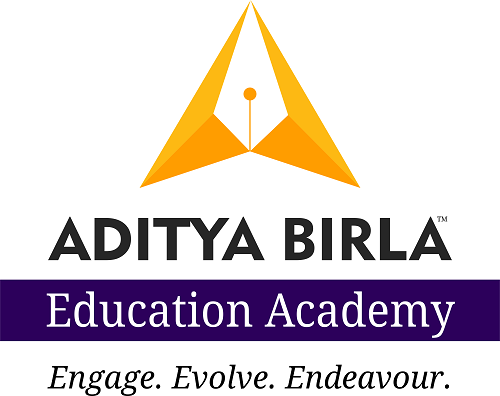Foundation literacy and numeracy in schools refer to the fundamental skills and knowledge in reading, writing, and mathematics. These are crucial for a student's basic educational development. These foundational skills serve as the building blocks for further learning and academic success throughout the life of a student.
Like all over the world, foundation literacy and numeracy are of utmost importance in Indian schools for several reasons.
-
Firstly, access to education is greatly enhanced when students possess strong literacy and numeracy skills. Proficient reading and mathematical abilities enable students to fully comprehend textbooks, follow instructions, and actively participate in classroom discussions.
-
Secondly, foundation literacy and numeracy skills serve as the bedrock for academic achievement across all subjects. Students who possess these skills are better equipped to grasp complex concepts, solve problems, and achieve higher academic performance.
Here comes the importance of proper knowledge and training for teachers. Because teachers only take care of the foundation literacy and numeracy in the school setup. Aditya Birla Education Academy, one of the leading international teacher training institutes in Mumbai is comprised of all the necessary tools and techniques to provide this knowledge. ABEA has been working on providing omplete support in the improvement of the teachers with utmost care.
Let’s have a real-life example of the importance of foundation literacy and numeracy in schools
In a bustling Indian school named Blossom Elementary, a group of young students embarked on a remarkable journey of foundation literacy and numeracy. Their teacher, Mrs. Gupta, introduced them to the magical world of letters and numbers.
Every day, Mrs. Gupta would gather the children in a circle, armed with colourful books and counting blocks. With enthusiasm in her voice, she shared captivating stories and encouraged the children to explore the pages of their books. The students listened intently, their imaginations ignited as they delved into exciting tales of adventure and knowledge.
In the afternoons, Mrs. Gupta transformed the classroom into a playful math haven. She presented puzzles, introduced new concepts, and watched as the children's faces lit up with understanding. They learned to count, add, and subtract, discovering the joy of unlocking the mysteries hidden within numbers.
As time went on, the students blossomed, their love for literacy and numeracy growing with each passing day. They became confident readers, eagerly sharing their favourite stories with one another. Their math skills soared as they tackled increasingly complex problems, applying their knowledge to real-life situations.
In the end, these young students not only learned to read and calculate but also discovered the power of knowledge and imagination. They realized that literacy and numeracy were not just skills for the classroom but tools that would shape their futures.
Years later, as successful professionals, they fondly looked back on their time at Blossom Elementary. They credited their foundation in literacy and numeracy for their achievements, grateful for Mrs. Gupta's guidance and the invaluable lessons they had learned.
In every corner of India, stories like this unfolded in countless schools, where dedicated teachers nurtured the seeds of foundation literacy and numeracy. These stories became a testament to the importance of these skills, ensuring that future generations would have the tools they needed to thrive in an ever-changing world.
The role of foundation literacy and numeracy in schools is of utmost importance as they form the building blocks for a child's academic and lifelong learning journey.
Let’s discuss the key aspects of the role of foundation literacy and numeracy in school:
Establishing Strong Basics through the foundation literacy and numeracy:
Foundation literacy and numeracy skills lay the groundwork for all other subjects and areas of learning. Proficiency in reading, writing, and basic math concepts is crucial for students to effectively engage with the curriculum across various subjects.
Enabling Communication and Expression through foundation literacy:
Literacy skills enable students to effectively communicate their thoughts, ideas, and feelings. It empowers them to express themselves verbally and through written communication, enhancing their overall language development.
Developing Critical Thinking through Foundation Numeracy and Literacy:
Foundation numeracy skills help students develop critical thinking and problem-solving abilities. Numeracy skills enable students to understand and analyze data, make informed decisions, and solve real-life problems.
Promoting Independence and Self-Confidence through Foundation Learning:
Strong foundation literacy and numeracy skills empower students to become independent learners. They gain confidence in their abilities to navigate through texts, comprehend information, and apply mathematical concepts, fostering a positive attitude toward learning.
Foundation Literacy and Numeracy for Enhancing Academic Success:
Proficiency in foundation literacy and numeracy provides a strong academic foundation for students, allowing them to effectively engage with more advanced concepts and subject matter. Students with solid literacy and numeracy skills are better equipped to succeed in higher education and future career paths.
Fostering Lifelong Learning with Foundation Literacy and Numeracy:
Foundation literacy and numeracy skills are essential for lifelong learning. They equip students with the necessary skills to continue learning independently, explore new ideas, and adapt to a rapidly changing world.
Addressing Equity and Inclusion through Foundation Literacy:
Strong foundation literacy and numeracy skills are critical for achieving educational equity. By ensuring that all students have access to quality education in these areas, schools can bridge achievement gaps and promote inclusive learning environments.
Schools play a crucial role in providing effective instruction and support for the development of foundation literacy and numeracy skills. By implementing evidence-based teaching practices, personalized interventions, and ongoing assessment, educators can empower students with the tools they need to succeed academically and in life.








